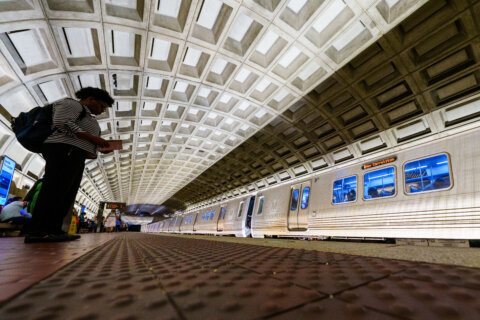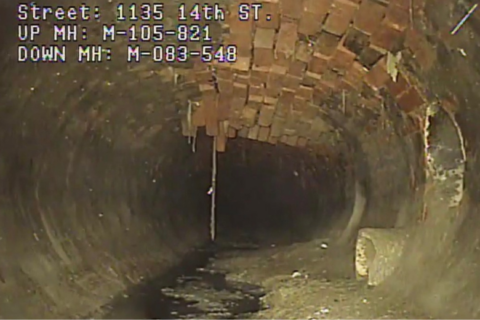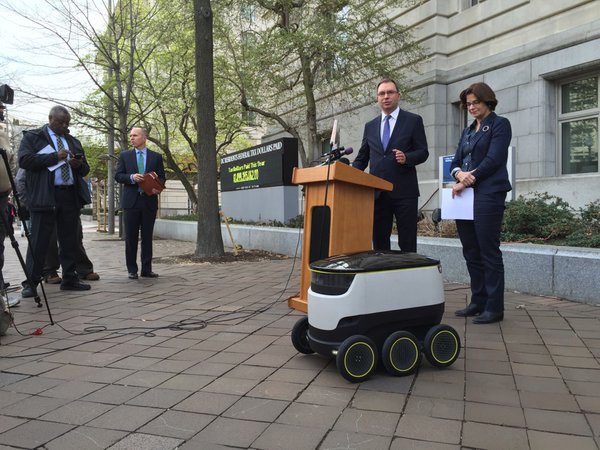

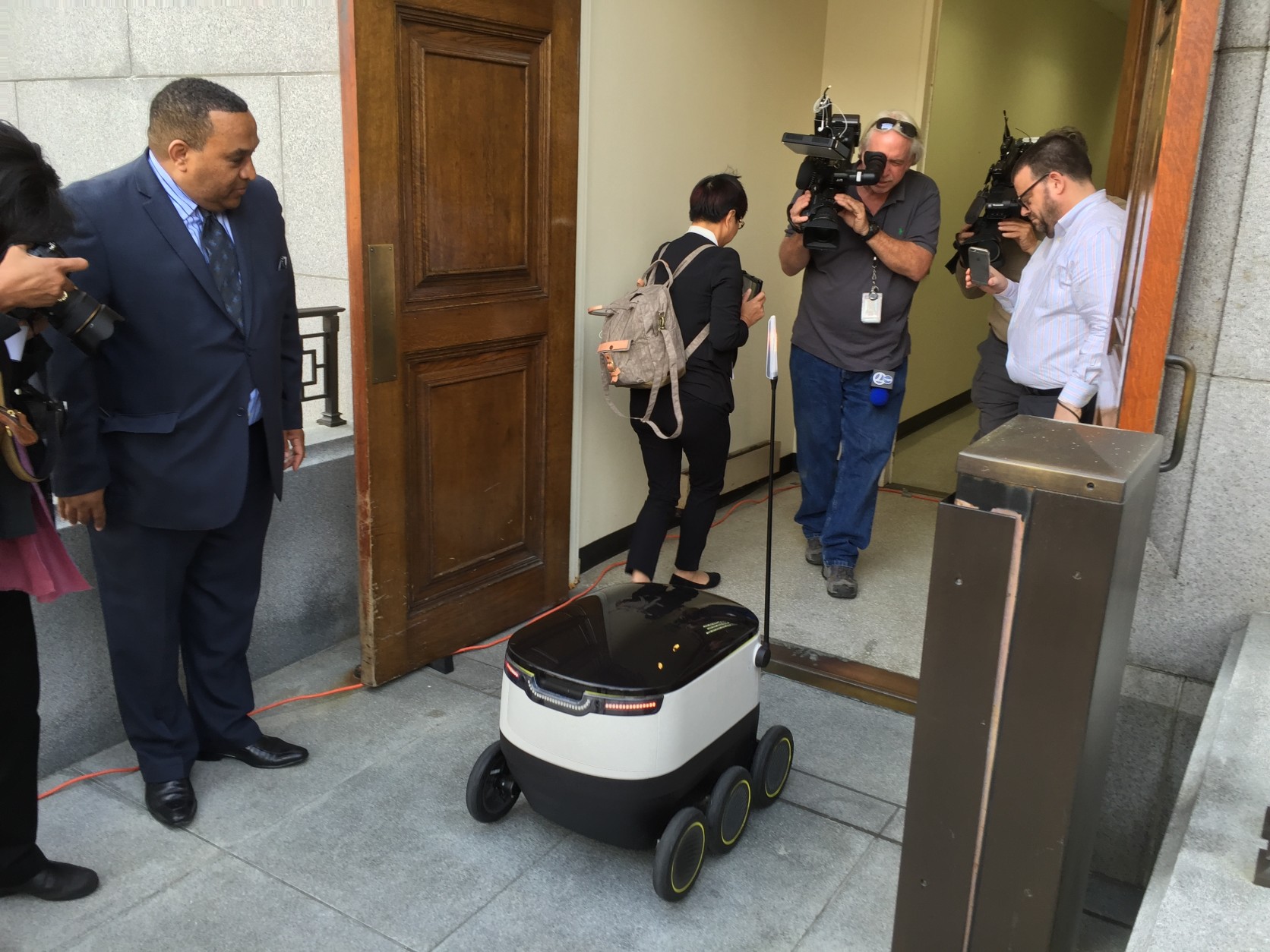
Robot can be called on demand to make secure deliveries #Robots2deliverDC @MaryCheh #WTOP @councilofdc pic.twitter.com/inOfORwVP6
— Kristi King (@kingWTOP) March 23, 2016
Cargo hold of Starship Technologies robot can carry 20/25lbs. @marycheh sz @councilofdc hearings maybe in May #WTOP pic.twitter.com/eMtv6Cqxej
— Kristi King (@kingWTOP) March 23, 2016
Bill to allow #Robots2deliverDC proposed @MaryCheh #WTOP pic.twitter.com/PcqEEHsvxr
— Kristi King (@kingWTOP) March 23, 2016
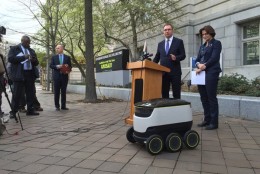
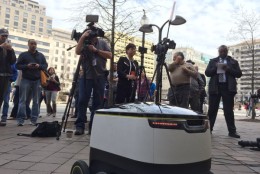
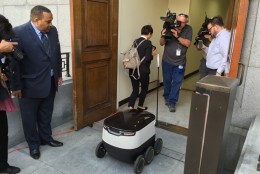
WASHINGTON — The national capital region is a “no drone” zone, but automated deliveries could be coming to D.C. via wheeled robots.
“We’re often on the cutting edge here in the District of Columbia, environmentally and in transportation issues, so I think it’ll get a great reception,” said D.C. Councilmember Mary Cheh.
To demonstrate the robot’s abilities, Cheh used it Wednesday to deliver to the council secretary her bill formally proposing the “Personal Delivery Device Act of 2016.”
The robot, developed by Starship Technologies, has sensors and cameras. It can read crosswalk signals and avoid pedestrians. It comes when called with a smartphone app.
“You’ll get notification that your package is in and can be delivered. And then it’s up to you to say [for example] I want it at 5:30 tonight and give the address — then it’ll deliver,” Cheh explained.
The robot has a range of one to two miles and can carry 20 to 25 pounds of cargo. It has zero CO2 emissions and has the potential, Cheh says, to greatly reduce pollution and traffic by cutting down on last-mile deliveries — “the last mile of delivery that involves trucks and extraordinary emissions and cost to make deliveries to homes and apartments,” Cheh said.
If the robot breaks down, it can call for another robot to retrieve it.
The robots would be monitored by human handlers who could take over control if needed. If it’s tampered with or stolen, for example, the human handler could talk to the thief via microphone, alert police and take a picture of the offender.
Cheh expects the D.C. Council Transportation Committee she chairs could hold public hearings on automated deliveries as early as May.
View the bill below:
Personal Delivery Device Act of 2016



